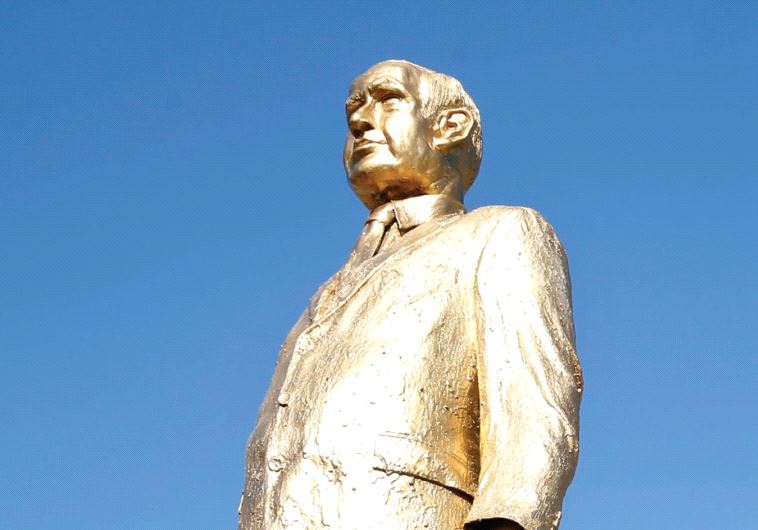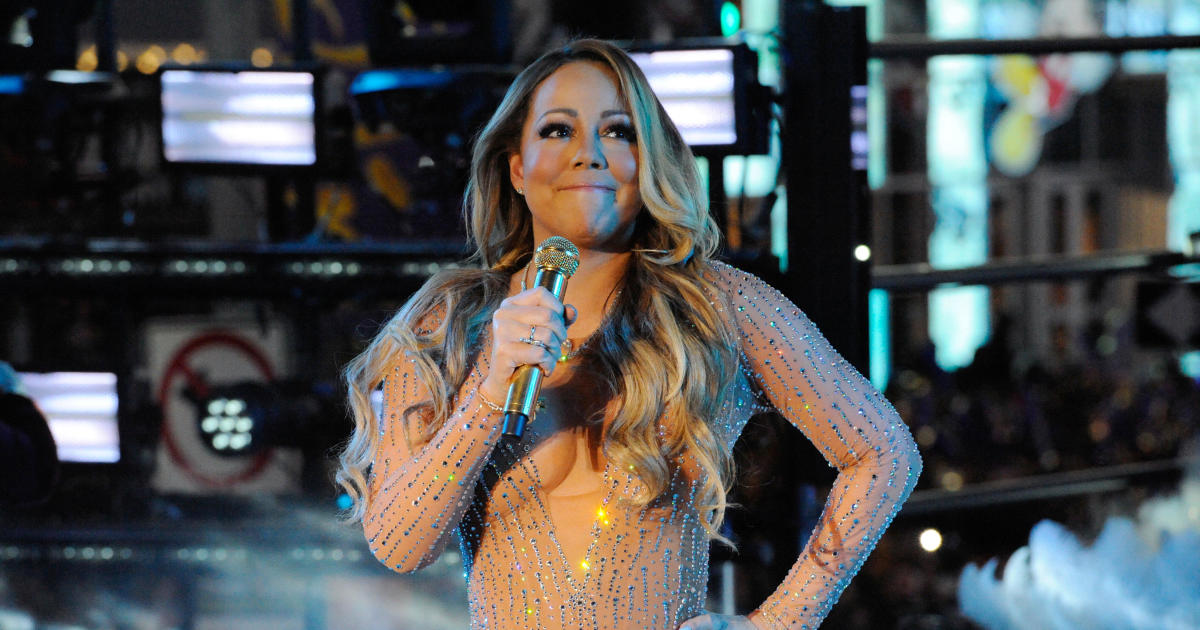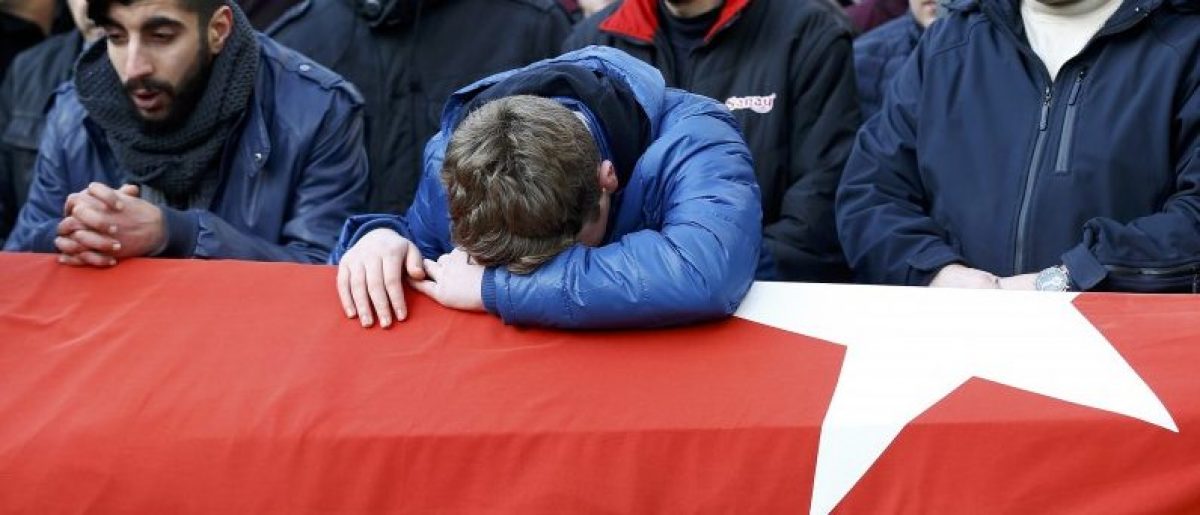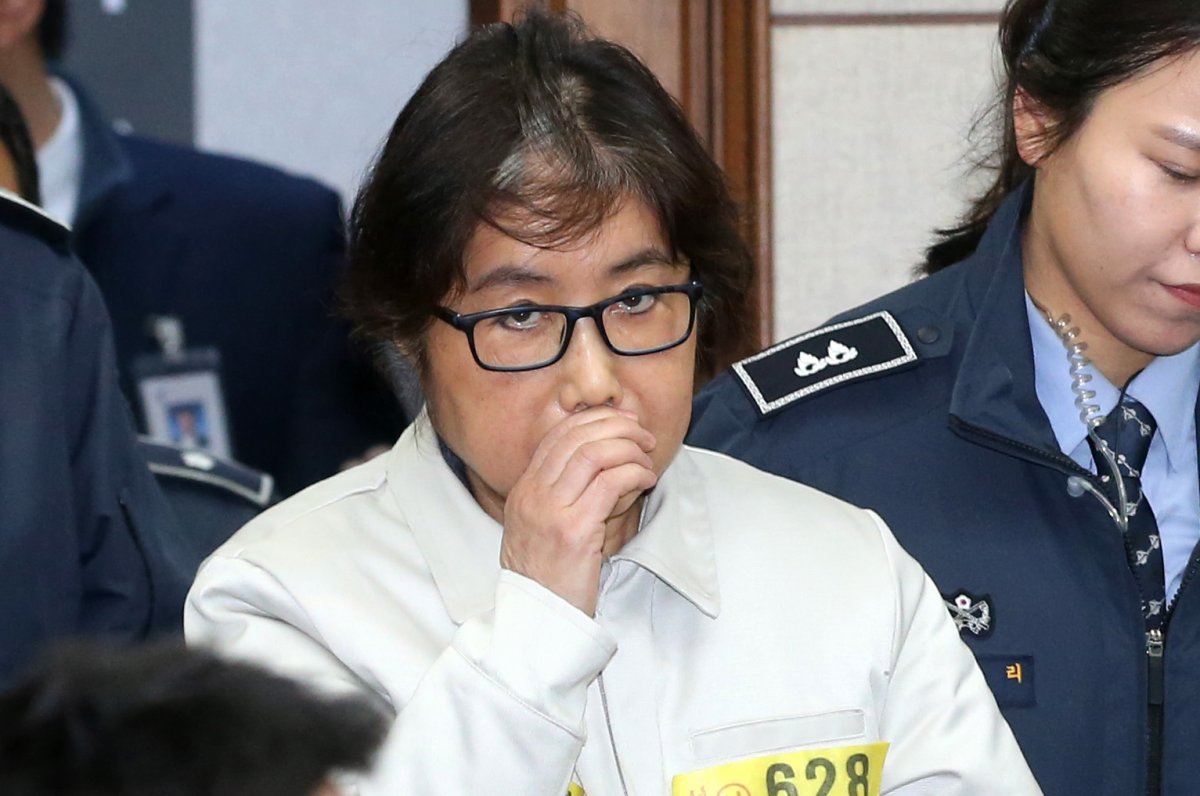 On December 5, Prime Minister Benjamin Netanyahu was knocked down.
On December 5, Prime Minister Benjamin Netanyahu was knocked down.
“Tel Aviv offered a rare chance to topple Netanyahu,” wrote journalist Omer Benjakob on Twitter. A golden statue of the Prime Minister had been erected at Rabin Square by a then-unknown artist, and crowds arrived to take selfies, give the statue the finger and eventually to topple it.
Be the first to know – Join our Facebook page.
But to the consternation of those celebrating his fall, “King Bibi,” as Time anointed him in 2012, is still standing in Jerusalem. (Golden Netanyahu statue causes stir in Tel Aviv (Reuters))
“The golden statue merely bolsters Netanyahu among his supporters who see the ‘Tel Aviv bubble’ going wild,” wrote commentator Ravit Hecht.
The toppling and debate about it fed into the spotlight that is on Netanyahu, because of his personal conflict with various Israeli media personalities and outlets. His Facebook page regularly takes swipes at individual journalists.
Channeling Donald Trump’s frequent claims that enemies in the media have low ratings, Netanyahu slammed Channel 10 in a Facebook post on December 4, accusing it of being full of “radical leftists,” and of frequently criticizing his family. “No wonder the ratings are so low.”
“The Israeli media allows itself to systematically discredit the sons of Prime Minister Netanyahu,” was another accusation published on his Facebook page on a different occasion, “ever since they were young,” arguing that families of other prime ministers had been left alone.
The conflict with the Israeli media is conducted in Hebrew by the prime minister. In contrast, when he wants to remind the foreign public of his role in working with Christians and African states, highlight Israeli innovation or post about his experiences as a young fighter in the General Staff Reconnaissance Unit, he blends Hebrew and English. Abroad, particularly in the United States, he is seen as a popular statesman, but at home the prime minister appears under siege.
It is also a known fact that Netanyahu prefers avoiding interviews with the Israeli media, although he sits down with their foreign colleagues, as he did just recently on 60 Minutes.
“THERE WAS always tension,” says Yoaz Hendel, who was director of communications and public diplomacy for Netanyahu in 2011-2012.
“There is a well-known cliché that if even paranoids have enemies, he is paranoid and he has many enemies. Columnists and reporters critique him for things he has done and hasn’t done, for that reason one should first of all understand there is a real reason for the sensitive treatment that Netanyahu gives to the media.”
Netanyahu’s team is very cognizant of his defensiveness, and his staff have experimented with new social media strategies in the last year. Videos, disseminated over the summer and fall, widely credited to his spokesman David Keyes, received tens of millions of views. Over the summer the prime minister also attempted outreach through meetings with journalists in Israel.
“What happened in the last two years since the [2015 election] campaign, the shift, or change, is that he did it more publicly and bluntly, and mentions media outlets and people by name,” says Raviv Drucker of Channel 10. He says there is a major difference between the past tensions with Israeli media, and the use of social media that began before the election and culminated in a Facebook post on Election Day about “Arabs flowing to the ballot boxes” and being bused by the “Left’s NGO.”
“The fact is he won the election after he made this change… in his mind he figures this is the way to do it and why not continue, and now he is doing it more aggressively than ever,” says Drucker, who has been attacked on the prime minister’s Facebook page seven times in two months. The prime minister, says Drucker, has become “preoccupied” and obsessive.
SHUKI TAUSIG, editor of the Seventh Eye – a Hebrew news outlet that focuses on all aspects of the (mainly Hebrew) media in Israel – says that “Netanyahu didn’t invent this hostile and abusive approach of political and personal attacks on media.”
But Tausig argues that since the last election, Netanyahu has sharpened his attacks and gone beyond the historical norm.
“I would say that it is like a copy of Trump, the quality and quantity of his reactions to specific journalists in the last few months ago is becoming unique.”
What makes Netanyahu’s approach historic, in Tausig’s view, is that he is fighting an unconventional war against a series of opponents, and he risks wielding his torch in such a way as to burn down the whole institution of journalism. To win individual battles everything can be sacrificed.
Tausig argues this approach is similar to how Netanyahu approached the gas-deal controversy and other government regulators, willing to erode the institution to get his way.
BUT IT seems that Netanyahu’s approach is working partly because the public in Israel is suspicious of the motives of some journalists.
“The media overplays events in many areas, especially in its overly zealous pursuit of its political rivals,” wrote Israel Harel at Haaretz on December 9. “A growing number of Israelis see it as a group that, rather than seeking justice, is seeking the head of Prime Minister Netanyahu.
The influence of the press is on the decline.”
A survey by the Edelman Trust Barometer and Debby Communications found that only 35% of Israelis trust the media (compared with a global average of 49%). A 2014 Israel Democracy Index survey found that only 28% of Jews and 37% of Arabs in Israel trust the media.
It was the least trusted institution (by contrast, 88% of Jews trust the army and 60% of Israelis trust the Supreme Court).
Attacking the media historically was political suicide. Mark Twain once quipped, “Never pick a fight with a man who buys ink by the barrel,” a witticism successful politicians such as Bill Clinton often referenced. In relations between the media and public, British prime minister Benjamin Disraeli said the best approach of a politician was “never complain, never explain.” Richard Nixon’s chief of staff, H. R. Haldeman, gave similar advice to Nixon’s team in the wake of the Kent State massacre in 1970.
But in the age of social media, these old maxims are being pushed aside. The world of social media and online media is sometimes called the “fifth estate” to contrast it with more traditional “fourth estate” mainstream media.
Using social media, where politicians may have more followers and “likes” than old media have, allows them to reach the public directly.
“I don’t see a threat to freedom of speech or freedom of journalism,” says Hendel, “but I see the process that Netanyahu has done… his reactions and treatment and behavior to those who criticize him in the last two months changed everything.” He compares it to behaving like a “talkbackist” – referring to online reactions people write at the bottom of news articles and other online publications – which has reduced the prestige of the office of the prime minister.
“We all lose,” says Eli Pollak, a professor and former chairman of Israel Media Watch. “No one is relating [to Netanyahu] in a professional way and we all lose – those who want to replace him lose and those who want him in power lose.”
Dr. Tehilla Schwartz Altshuler, a research fellow at the Israel Democracy Institute who heads the Media Reform project, and a lecturer in public policy at the Hebrew University, agrees that the public is the real victim in this battle.
“What bothers me is the fact that this delicate point of equilibrium between checks and balances of state and government and the fourth estate has been taken off. This is really something that hurts the Israeli public.”
Michael Freund served as deputy director of Communications and Policy Planning in the Prime Minister’s Office, and was an adviser to Netanyahu from 1996 to 1999 during his first term. He dealt closely with the local and foreign press. He too feels that the “media landscape has changed completely in the last two decades, as politicians now have ways of reaching the public that were simply inconceivable in the 1990s.”
He explains that Netanyahu’s media strategy has also shifted accordingly: “Back then he did a lot more interviews than he does today, as that was the primary delivery mechanism available at the time. The strategy of the past few years has seemed to be more measured in that sense… he has employed social media and other means to get his message out… And it’s not just him – many politicians in Western countries have embraced this model.”
In a sense, Netanyahu is a forerunner of Trump, not the other way around.
“Personally, I think that many of the media elites simply do not give him a fair or balanced opportunity in terms of how they cover him and his family,” says Freund, echoing a sentiment among many who have worked with Netanyahu over the years. “And that in part is rooted in ideology. Most of the media in Israel as you know have long been dominated by people with left-of- center views, and that comes across quite clearly in the manner in which they cover things.”
Freund argues that in Israel it was “common practice at the Hebrew dailies for someone to be both a news reporter as well as someone who writes opinion pieces for the same paper. This inevitably creates a situation where it is very easy for someone to slide into opinion when he should be reporting the news, which affects not just the journalistic quality of the product but the balance and objectivity that is supposed to be brought to the subjects being covered.”
FOR ALL the criticism of the nature of Israeli media, which itself is a source of the conflict, the reality is that since the foundation of Zionism, many leading Zionists had a journalistic background.
Theodor Herzl, David Ben-Gurion, Yitzhak Ben-Zvi and A. D. Gordon were all contributors to newspapers. Zeev Jabotinsky was a journalist and editor at Do’ar Hayom , while Davar, once the leading Hebrew newspaper in the country, was founded by the Histadrut.
Gershon Agron, founder and editor of The Palestine Post , forerunner of The Jerusalem Post , eventually became mayor of Jerusalem.
Media were closely affiliated with political parties in the early days of the state. But the papers that went on to survive to the modern era – Yediot Aharonot , Haaretz and Maariv – were not.
Both Yediot and Haaretz are connected to historic newspaper families, Mozes and Schocken. By the 1990s, Yediot ’s circulation had reached 350,000 on weekdays, controlling more than 65% of the market according to the Government Press Office in 1994.
While old party newspapers such as Davar (associated with Mapai and the Histadrut) were closing down in the 1990s, the television market was opening up, with the new Channel 2 (1993) and Channel 10 (2002).
Israeli radio was a closely controlled government monopoly.
Indeed, many assert that Netanyahu’s conflicts with institutions such as the Israel Broadcasting Authority stem from this long history in which institutionalized journalism is seen as inimically hostile to the political Right.
Netanyahu’s colleagues remember him as always being deeply involved in crafting his media image. “I know from my experience in the 1990s that there are many politicians who have very little to do with the speeches they make beyond the fact the words leave their mouths, but that was absolutely not the case with Netanyahu,” says Freund.
“He was actively involved in crafting the thoughts and words that he said… in many cases Netanyahu would make a lot of edits, he would change things, and he was involved from the very beginning in terms of deciding what to include, the points and turns of phrase, even structural issues, which is something that a lot of people don’t do.”
FOR FREUND, a source of the hostile feelings goes back to the Oslo peace process.
“Much of the media served as cheerleaders for the Oslo process,” he says. “We know there were journalists who knew about the secret talks with [Yasser] Arafat and kept quiet. Even though it was a major scoop, they sat on it, as they wanted to see a deal reached with the PLO,” asserts Freund. “So the fact that Mr. Netanyahu led the public charge against the disaster of Oslo placed him in a position where many in the media viewed him as a threat to their dream or delusion that peace was at hand, and I don’t think they ever forgave him for that.”
Daniel Seaman, who worked at the Government Press Office in the 1990s and was the deputy director-general of the Public Diplomacy and Diaspora Affairs Ministry in 2013, says Netanyahu’s relationship with Israeli media was always problematic.
“I knew him from the 1980s when he was ambassador [to the UN]; he was an expert in the media,” says Seaman, adding that Netanyahu carefully worked on his mannerisms and sought training to craft his image and improve his natural ability to give speeches.
After being elected Likud leader in 1993, Netanyahu was the main voice against Oslo. After Yitzhak Rabin was assassinated, Netanyahu was blamed for standing by as an incitement campaign led to the murder of the prime minister, a sentiment that still prevails today among many circles on the Left.
In November 2015, Nehemia Shtrasler wrote that Netanyahu was “chief among them” who “stood on a balcony above Jerusalem’s Zion Square and inflamed the crowd. They [politicians] saw the posters of Rabin in an SS uniform, but did not protest… Nor have we forgotten the march at the Ra’anana junction led by Netanyahu, who did not stop the carrying of a black-draped coffin bearing Rabin’s name.
“Then came the 1996 election,” continued Shtrasler in his article, “when Netanyahu beat Shimon Peres by a hairbreadth (30,000 votes). That’s why it’s clear that if Rabin, who was far more popular than Peres, had faced Netanyahu, he would have won easily and continued the Oslo process. We would now be in an entire different reality, of peace alongside a Palestinian state.”
Many in the press mourned not only the prime minister, but what they saw as the harm done to the peace process.
Several years later, when Netanyahu ultimately lost to prime minister Ehud Barak, he blamed the press in a famous rally, claiming “they are afraid.”
At the Government Press Office’s annual New Year event with the foreign press on December 20, Netanyahu was asked about his use of Facebook to critique the media, and whether it was an effective strategy.
“It’s fun, I enjoy it,” Netanyahu responded, adding that he supported a free press, and came from a democratic tradition of support for a critical press.
“A free press should critique and monitor the government… criticize anyone who comes into the government and whatever they want to say, it’s up to them… it’s their prerogative.” However he added a proviso: “That means that the media market should be open… and not monopolies, I’ve been busting monopolies, that’s why it’s wrong, it outgrew.” Then, without elaboration he moved on, leaving the implication that he feels media monopolies have outgrown their power and that his critique is merely reining them in.
WHILE DRUCKER, who has been in journalism since 1993, acknowledges that Netanyahu has long been obsessed with coverage, he doesn’t think it colors how journalists today see the prime minister.
“I don’t think it is about the 1990s. We suffer from a short memory regarding everyone. Shortly after [Ariel] Sharon came to power in 2001, no one mentioned the Lebanon War – which was such a trauma – anymore. Netanyahu may think it [the anti-Rabin incitement accusation] harms him, and some remind him of it around November 4 [the anniversary of Rabin’s assassination], but most of the time it is really not part of the debate.”
For those around Netanyahu, the critical crowd is centered in the Tel Aviv “bubble.” But there is also a paranoia that has seeped in since the 1990s that is comparable to that felt by Nixon toward a hostile press. “He sees himself as Churchill, but there is a lot of Nixon in him,” said one media professional who has worked with the prime minister.
Altshuler also sees the origin of today’s conflict beginning 20 years ago. “May 22, 1996, saw the opening of a circle whose outcome we see today. By the end of that dramatic night, Netanyahu understood he won the election; he also won the negative stigma, the media delegitimization…”
She argues that Yediot played an outsized role as a near monopoly in the 1990s, and that Netanyahu came to understand the media’s power to influence the public discourse.
“It took 11 years, but the idea of I srael HaYom was born, and since then Yediot has been collapsing. The elections of 2015 took place because of the Israel HaYom legislation, and we got very directly the destruction of influence of media ownership on framing of news and agendas…”
In 2014, a “law for the advancement and protection of written journalism in Israel,” known as the “Israel HaYom Law” was proposed to prevent distribution of a large free newspaper, and it began to work its way through the Knesset with broad political support from Netanyahu’s rivals, including on the Right. Elections were called, and the law died in the Knesset.
Launched in 2007 as a free daily newspaper with support from Sheldon Adelson, Israel HaYom – widely dubbed “Bibiton” (a combination of Bibi and the Hebrew word for newspaper – iton) – became the most widely read newspaper in Israel in 2010, according to the Target Global Index (TGI). Although its weekend edition was still surpassed by Yediot , its power in the marketplace was unique.
In a study conducted by +972, Noam Sheizaf in 2010 saw the “sharp anti-Netanyahu tone of Yediot ” as connected to the rise of Israel HaYom .
“ Yediot is constantly publishing articles attacking the prime minister, his staff and even his wife. Star pundit Nahum Barnea is especially hostile to Netanyahu. In fact, I think there is only one columnist in Yediot – Hanoch Daum – who is an open Netanyahu supporter and a proxy to the Netanyahu family.”
In a 2014 meeting with the foreign press, the prime minister mocked journalists for taking selfies and photos. “I’m the only one here without all these electronic devices, I’m a free man and you all are slaves,” he told them.
But Netanyahu soon grasped the power of new media. “He has now aligned himself with people in the circle such as Ran Baratz and David Keyes,” Seaman notes, referring to top media advisers. “The way he handles the press now is what got Trump elected, not backing off, not being apologetic, taking them on… It can only benefit him,” he adds. “Media is on the defensive.”
Seaman traces a connection between the way the public lost faith in politicians in the 1970s with scandals, and how today the public has lost faith in major media not only in Israel and the US, but throughout the world.
WHILE SOME sympathetic voices see Netanyahu as trying to open up the media landscape, critical voices accuse him of exactly the opposite – trying to shut down free media.
Igal Sarna, a columnist at Yediot, argues that in the hands of Netanyahu the state has changed dramatically.
He doesn’t want “any kind of opposition and criticism; any kind of different idea is seen as being a kind of treachery.”
For Sarna and other critics, the behavior of Netanyahu is akin to that of Turkey’s President Recep Tayyip Erdogan.
He sees no checks and balances on the current government’s right-wing leaning.
“It has gotten worse, there is a kind of escalation… he is more and more paranoid, and after a very long period of being prime minister he feels he can do whatever he wants. He doesn’t behave like a democratic prime minister, he looks up to Vladimir Putin and Erdogan, his models.”
Sarna argues that Netanyahu used the lack of rules regarding Facebook and YouTube during the last election to spread his message on Election Day, claiming that Arabs were voting in large numbers at the polls.
“He is not a great expert in Internet and cyber, he uses people who do it for him,” said Sarna. “He is very active in Facebook. We are now in the middle of a really very crucial conflict between Netanyahu and free speech and free journalism. Israel isn’t going to stay the only democracy in the Middle East [if this continues].”
The consequences of this approach will be long-term. Hendel says that several years ago Netanyahu would not have approved the kinds of reactions that his advisers are putting out in social media.
“Today someone shows him these reactions, and he accepts it as part of his strategy to attack journalists themselves, to delegitimize the delegitimizers.”
Hendel hopes that those on the Right will eventually realize the strategy is potentially harmful.
Drucker sees the delegitimization of media as continuing after Netanyahu leaves power. It will harm the economic prospects of the media that do exist, he believes.
Altshuler, on the other hand, says that both Netanyahu and his critics need to internalize the need for pluralism.
“Netanyahu needs to realize that in the history of the free world, no leader succeeded in controlling the media, this comes with counter-affects and he needs self-restraint.”
She mentions the case of Ilana Dayan, who aired a program critiquing the prime minister and his family.
Netanyahu sent a response: “It would be interesting to see whether Ilana Dayan, who portrays herself as a knight of freedom of expression, will publish our response in full, uncensored.”
Dayan read the entire response on air: “The time has come to unmask Ilana Dayan, who has proven once again that she has not even a drop of professional integrity. Ilana Dayan is one of the leaders of a concerted frenzy against Prime Minister Benjamin Netanyahu, aimed at toppling the right-wing government and leading to the establishment of a left-wing government.”
Altshuler compares this behavior to Trump’s victory in the US, which has involved erosion in trust of major media and the spread of fake news.
“You need to understand that enhancing lack of public trust in crucial social institutions, such as the Supreme Court or media, removes the cement that glues blocks of democracy from crumbling. So this is what I’m concerned about,” said Altshuler.
“It isn’t clear how the Israeli media and Netanyahu can be extricated from this cycle,” says Yisrael Medad, a commentator on media in Israel since 1995 and columnist at the Post .
“The media have failed,” adds Eli Pollak, another commentator on media for the Post , “not so much that Netanyahu is successful. They have gone so far in their constant criticism that the public is sick and tired, they realize it is nonsense, they accept him more than they accept the media.”
Asked to comment on the article’s subject and concerns, a source close to the prime minister, who requested not to be identified, responded: “Israeli media, which have been woefully unbalanced toward the prime minister, have failed to persuade the public to take on the left-wing policies they support. Unable to beat him on policy, they attack the prime minister personally to try to bring him down in the hope of installing a left-wing government. The prime minister understands the importance of a free press in democracy. It’s unfortunate that so much of the media have been so blatantly partisan and deceitful about him.”
WHEN JOURNALISTS ran to cover the toppling of the golden statue in Tel Aviv, Haaretz ran a cartoon by Amos Biderman showing the Labor Party hosting a news conference about Netanyahu’s “hidden taxes” and bulldozers advancing on Amona, an outpost in the West Bank, whose looming evacuation has been in the center of public attention lately, as it may lead to a change in state policy regarding illegal outposts. The implication of this cartoon was that the media were happy to see a false idol crushed, but they were ignoring real stories in their quest to have catharsis over harm done to Netanyahu.
As Itay Zalait – the artist who erected the statue in Rabin Square – plainly stated just after the event: “Time will tell if it will be a provocation or a prophecy.”
Relevant to your professional network? Please share on Linkedin
Think others should know about this? Please share
| |
© Source: http://www.jpost.com/Magazine/Netanyahu-vs-the-media-round-2016-476850
All rights are reserved and belongs to a source media.
 October on Earth
October on Earth 

 Iran’s Oil Ministry has published list of 29 international companies qualified to bid for oil and gas projects following the lifting of sanctions under a landmark nuclear accord.
Iran’s Oil Ministry has published list of 29 international companies qualified to bid for oil and gas projects following the lifting of sanctions under a landmark nuclear accord. 
 CLEVELAND (AP) – Authorities say recovery efforts are resuming in the search for a small plane carrying six people that disappeared over Lake Erie, near Cleveland.
CLEVELAND (AP) – Authorities say recovery efforts are resuming in the search for a small plane carrying six people that disappeared over Lake Erie, near Cleveland. 

 by Orit Arfa
by Orit Arfa 
 A French start-up has grown a “smart” aromatherapy diffuser.
A French start-up has grown a “smart” aromatherapy diffuser. 
 Carey’s disaster during the annual New Year’s Eve special in Times Square made international headlines: The superstar vocally stumbled through her short set, failing to sing for most of it despite a pre-recorded track of her songs playing in the background.
Carey’s disaster during the annual New Year’s Eve special in Times Square made international headlines: The superstar vocally stumbled through her short set, failing to sing for most of it despite a pre-recorded track of her songs playing in the background. 
 The Islamic State has claimed responsibility for the shooting at an Istanbul nightclub on New Year’s Eve, which killed 39 people and injured nearly 70.
The Islamic State has claimed responsibility for the shooting at an Istanbul nightclub on New Year’s Eve, which killed 39 people and injured nearly 70. 
 Park also said that she was set up over allegations that she ordered the government to support a 2015 merger of two affiliates of South Korean conglomerate Samsung, a deal which has become central to the investigation.
Park also said that she was set up over allegations that she ordered the government to support a 2015 merger of two affiliates of South Korean conglomerate Samsung, a deal which has become central to the investigation.
 AALBORG, Denmark, Jan. 2 (UPI) — Local authorities in Denmark have arrested Chung Yoo-ra, daughter of Choi Soon-sil, who is currently ensnared at the center of the growing South Korean political scandal surrounding President Park Geun -hye and her parliamentary impeachment last month.
AALBORG, Denmark, Jan. 2 (UPI) — Local authorities in Denmark have arrested Chung Yoo-ra, daughter of Choi Soon-sil, who is currently ensnared at the center of the growing South Korean political scandal surrounding President Park Geun -hye and her parliamentary impeachment last month. 

